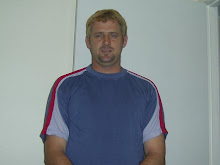For more info, free traning articles, training plans and e-books on cycling and training, visit this website.
Recovery is just as important to improving your cycling fitness as is the riding itself. You see, the way I think about it, training breaks your body down. It's the recovery that brings you back stronger. So you can't say one is more important than the other. You need both training to provide the training stimulus (and damage) and recovery to repair the damage and bring you back stronger. Most of the time I spend writing about the training piece but this month I'm going to focus on the recovery side. When you do a hard or long ride, a number of things happen to your body. You use fluids and energy, you get tired, and you break down muscle tissue. Each of these need to be addressed with recovery.
When you ride you lose fluid through breathing and sweating. The hotter it is and the harder you are working, the more fluid you lose. You should attempt to replace some of this fluid while you ride but when sweating heavily, this won't be possible. Therefore, you should concentrate on drinking a lot of fluids after your ride is completed. You should drink 1.5 litres of fluid for every litre lost during your ride. No idea how much you lose? Then you should weigh yourself before a ride and then after, without clothes, to see how much you lost. You might be surprised how much you lost, even though you drank lots during your ride.
You also use a considerable amount of energy during a bike ride. Your body uses both fat and sugar during a ride, and even some protein on longer rides. You need to replace lost nutrients after a ride. It's most effective to replace your blood sugar through carbohydrates within two hours of finishing a ride. This is the so-called Glycogen Window when your body is most receptive to absorbing energy into cells. It's also good to include some protein after a ride so your body can repair damaged cells. Your body has enough stored sugar for a 2-3 hour ride. You will need to replenish all these calories through food in the 24 hours following a long ride.
Muscles also need time to recover from the stress and strain of training. As you use your muscles, you create tiny trauma to your muscle fibers in the form of small tears. This is partialy what causes sore muscles following a hard ride. As your body heals your muscle tissues, they grow back a little thicker and stronger, which is what creates larger and stronger muscles through training. For this to happen, you need adequate food and fluid intake and you need to give your muscles time to heal. Depending on how much damage you did, how young or old you are and how fast your recover, it can take 1-3 days to fully recover from a hard ride or race. Massage can help the recovery process by flushing out waste products from your muscles and loosening up tight, sore muscles.
There are two main ways to rest from a hard workout, complete rest and active recovery. Complete rest is exactly what it sounds like, not riding, staying off your feet as much as possible, napping and sitting around. Going back to the office on a Monday after a hard weekend of riding is a good thing. Think of it as recovery. Just don't tell your boss. Active recovery involves easy riding or other types of cross training. The purpose here is to not rest your legs completely, where they may get stiff, but rather to move them easily to help stay loose and to use the muscles enough to flush out the waste products and pump blood and nutrients into your muscles. Usually, active recovery is preferred over complete rest but there are times when complete rest is called for.
And finally, your head needs to rest up from a hard workout. Training hard takes a lot of mental energy. Too many days and weeks of hard training can drain your brain of the necessary mental energy to keep pushing to avoid burnout. Rest days are just as important for your head as for your body.
When I am creating training plans, I put in anywhere from two to four recovery days per week. If someone is racing and training hard, they may need four days. For older riders, more recovery is needed. Then there's the mental energy component. Someone who works long hours and has other family activities to tend to, rest days are much appreciated.
So don't shortchange your recovery. The harder you ride and train, the more time you need to spend on recovery. Failure to do so may result in burnout, overtraining and the possibility of injury.
For more info, free traning articles, training plans and e-books on cycling and training, visit this website.
Subscribe to:
Post Comments (Atom)


No comments:
Post a Comment